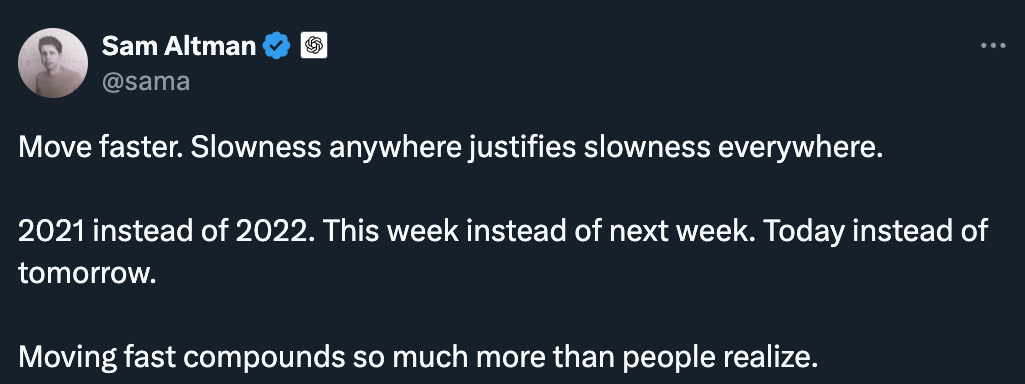Omar Pera visits us
Last week we were lucky enough to have Omar Pera visit us at the Tramontana Institute's product program to talk about his experience in the world of digital products.
Omar's professional career is fantastic, combining entrepreneurship and management in such relevant companies as Meta. He is currently CPO at Freepik, another of the gems of the Spanish digital product scene.

He couldn't come from Malaga, but we really enjoyed it remotely.
Omar Pera's participation was fantastic. As CPO at Freepik, he shared his experience with us on how AI is also influencing the way we build digital products. He took us on a tour that started with the basics of product development: build something people want, get feedback, improve quality, and only then dig deeper.
Most interesting was his perspective on how AI is accelerating these development cycles. He showed us how the building blocks change rapidly —"GPT3 is an intern, GPT4 is an expert"— and how 20% of the energy can drive 80% of the results. Omar emphasized the importance of staying current and, above all, learning by doing and adapting quickly.
One of the most insightful points was his focus on iteration speed. He shared practical tips like "aggressively time-box your releases" and "do quick drafts asking for feedback." He also talked about the importance of creating 1-2 essential user journeys to optimize, and how AI is democratizing product development—"not having the skills is no longer an excuse that lasts long."

Speed wins have never been so clear.
Omar shared a particularly interesting insight into how AI is changing the way we think about product development. He talked about how “living in the future —building with GPT-5 in mind—helps us make better decisions today. The future he envisions includes AI-generated movie-quality trailers, amateur creative directors like GPTs, and a perfect understanding of the visual world with real-time asset generation.
One of the most practical pieces of advice he left us with was about the importance of being strategic about differentiation. “Best” isn’t a differentiator, he told us. Instead, we should have a target persona to focus on initially, which can evolve over time. This approach helps us stay focused and ensure that every product decision has a clear purpose. We saw again here how digital product management is very much about reducing complexity, risk, and finding the signal within the noise.

For Omar himself, the changes of recent years are exponential.
He also spoke to us about the importance of sharing results instead of activities. "Celebrating results (we drove X metric) is more important than sharing activities (we did this)," he told us. And perhaps most valuable: being vulnerable and sharing what didn't work and the lessons learned. In a world where AI is staining everything—software as an oil stain—, the ability to learn quickly from our mistakes becomes a crucial competitive advantage.
Omar's presentation left us with a clear idea: in the era of AI, speed of iteration and adaptability are once again central. But he also reminded us that the fundamentals of a good product—understanding the user, obtaining real feedback, and continuously improving—remain the foundation of everything.
AI doesn't change these principles; it just gives us more capabilities to execute them.